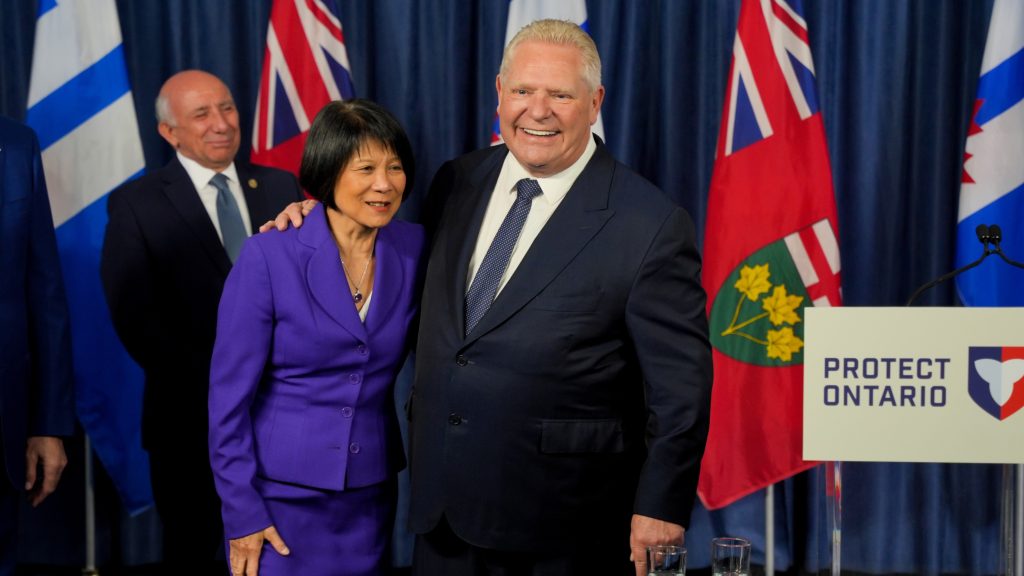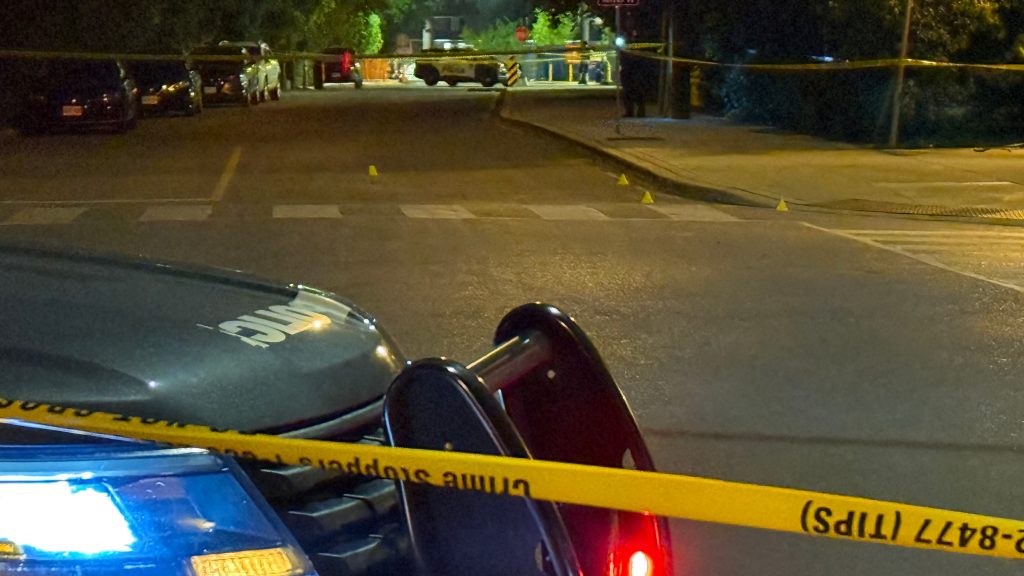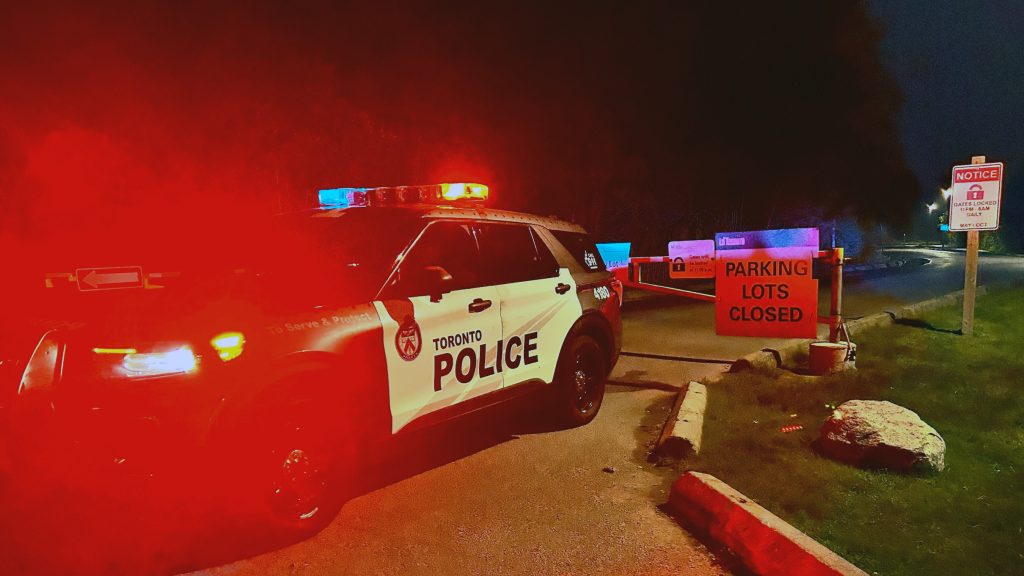On Friday, Premier Doug Ford visited City Hall, bringing along a significant $67 million cheque aimed at supporting Toronto in constructing additional homes and community infrastructure. However, the discussion swiftly shifted to the contentious issue of bike lanes in the city.
Last year, the Ford government enacted legislation intending to remove sections of bike lanes on major thoroughfares, including Bloor Street, Yonge Street, and University Avenue. Ford has attributed these bike lanes, in part, to the crippling gridlock experienced in the region, which he claims costs the Ontario economy approximately $56 billion annually. Although plans to dismantle these bike lanes have been stalled following a court injunction awarded in April to a cycling advocacy group, it appears that Premier Ford and Mayor Olivia Chow are inching towards a potential compromise on the matter.
Mayor Olivia Chow indicated on Friday that there may be feasible solutions allowing for increased vehicle access while also preserving existing bike lanes. She stated, “I think there are places that we can absolutely accommodate an extra car lane, so restore the car lanes but also have the bike lane there. I think that’s a solution that can be arrived at through collaboration, which is what we’re doing right now.” This sentiment mirrors earlier comments from the office of the Transportation Minister, which suggested a willingness to collaborate with the city, contingent upon the city’s commitment to fund its portion of identified infrastructure needs.
Ford has clarified that he is not opposed to bike lanes; however, he prefers them to be positioned away from major roads and on secondary routes. He emphasized that while he has a "clear mandate" to remove these bike lanes, he remains optimistic about collaborating with Mayor Chow to develop an alternative solution that satisfies all parties involved. “I think the world of the Mayor. We get along very well,” Ford said. “We may have some differences once in a while, but that gets solved every time I take her out for a bike ride Saturday and Sunday mornings.”
Regarding the pressing issue of gridlock, Premier Ford reiterated his commitment to the controversial Highway 401 tunnel scheme, adding an intriguing dimension to his proposal. “We’re building that tunnel, and at a future date we’ll even put transit right down the middle of the 401,” he stated, indicating a potential future integration of transit solutions within the highway infrastructure.
In summary, Premier Doug Ford's visit to City Hall not only highlighted the financial support for housing development but also underscored the contentious ongoing debate surrounding bike lanes in Toronto. With both the Premier and the Mayor expressing a desire for collaboration, the city could see a new plan emerge that balances the needs for both vehicular traffic and safe cycling infrastructure.












